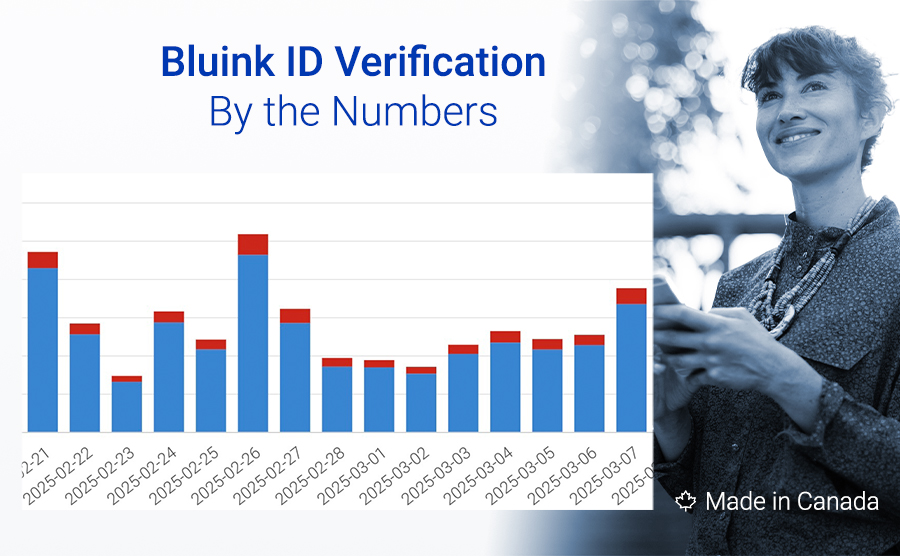
It has been a big month for Bluink with over 225,000 ID verifications being conducted on our servers, across all of our customers. All these verified citizens received reusable verified digital credentials that allow them to provide verified personal information in seconds, through a login to your CIAM!
While we won’t talk about any customer specifically (this is Fight Club after all), we can provide some interesting statistics and observations with respect to verification rates, failure modes, and system throughput.
First up, 225,000 verifications was the largest monthly volume on our eIDaaS service to date, with peak loads of 25,000 per day and 3,600 per hour. While that is big, our servers saw a maximum 20% CPU load, meaning we have ample excess capacity to process higher volumes. A bit of load balancing has allowed us to scale to 100,000 verifications per hour!
Now for some interesting stats.
We saw verification rates of 95.3% on the first submission… From the 4.7% verification failures, 2.7% were due to biometric verification (selfie matching), while expired documents accounted for 1.6%, and 1% related to name mismatch between documents. (Some failures can incur multiple modes, so yes, they don’t add to 4.7%.)
The biometric match is usually fixed by taking a new selfie or rescanning the ID card to correct for a blurry image, unless of course it’s a fraudster who should fail.
Expired documents don’t meet the verification requirements of valid and current, so keep your ID cards up to date if you want to enjoy the benefits of remote ID verification.
Passports are our preferred ID document as they have an electronic chip that can be scanned using the phones’ NFC capability. These passports provide a high level of identity assurance for ID verification, achieving IAL2 or IAL3 depending on who you talk to.
Speaking with some Government of Canada departments, they considered chip scanning to be too hard for citizens. From our end users, over 75,000 passports were scanned with a shockingly-low 0.006% failure rate! Seems like this is a viable method to use…
We also saw usage of over 100 passports from China, Great Britain, US, France, Japan, Morocco, and Malaysia.
As far as ID cards, over 110,000 Ontario driver’s licences were scanned, over 20,000 driver’s licences from Alberta, BC, and Québec, and over 1,000 driver’s licences from other provinces and territories.
We also processed NEXUS cards, Secure Certificates of Indian Status, Permanent Resident Cards, and ID cards from Nunavut, Northwest Territories, and Yukon.
What’s this all mean?
Well, clearly there is a Made in Canada solution available to verify your accounts and eliminate fraud that is pervasive in all areas of online digital life…
From real estate to government and beyond, Bluink has built a solution that meets the need.